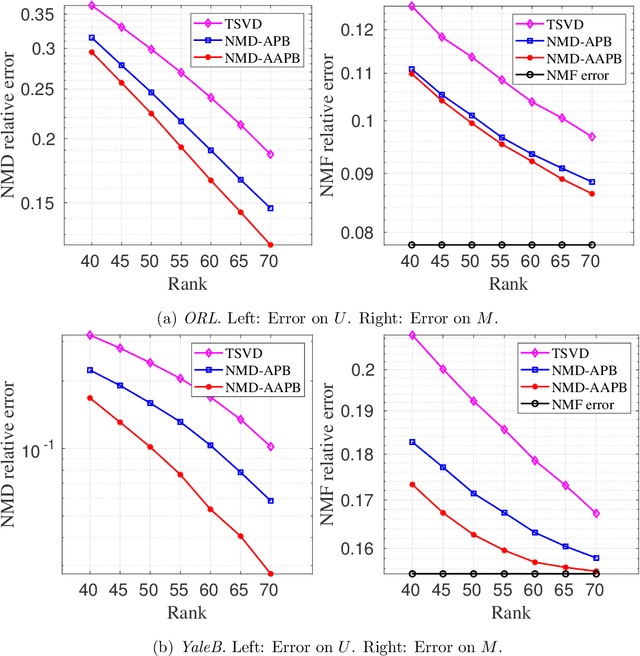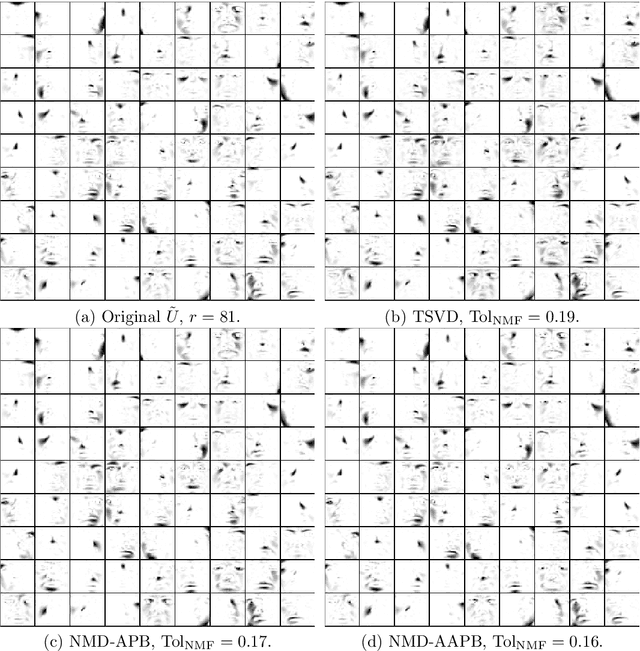An Accelerated Alternating Partial Bregman Algorithm for ReLU-based Matrix Decomposition
Paper and Code
Mar 04, 2025



Despite the remarkable success of low-rank estimation in data mining, its effectiveness diminishes when applied to data that inherently lacks low-rank structure. To address this limitation, in this paper, we focus on non-negative sparse matrices and aim to investigate the intrinsic low-rank characteristics of the rectified linear unit (ReLU) activation function. We first propose a novel nonlinear matrix decomposition framework incorporating a comprehensive regularization term designed to simultaneously promote useful structures in clustering and compression tasks, such as low-rankness, sparsity, and non-negativity in the resulting factors. This formulation presents significant computational challenges due to its multi-block structure, non-convexity, non-smoothness, and the absence of global gradient Lipschitz continuity. To address these challenges, we develop an accelerated alternating partial Bregman proximal gradient method (AAPB), whose distinctive feature lies in its capability to enable simultaneous updates of multiple variables. Under mild and theoretically justified assumptions, we establish both sublinear and global convergence properties of the proposed algorithm. Through careful selection of kernel generating distances tailored to various regularization terms, we derive corresponding closed-form solutions while maintaining the $L$-smooth adaptable property always holds for any $L\ge 1$. Numerical experiments, on graph regularized clustering and sparse NMF basis compression confirm the effectiveness of our model and algorithm.
 Add to Chrome
Add to Chrome Add to Firefox
Add to Firefox Add to Edge
Add to Edge